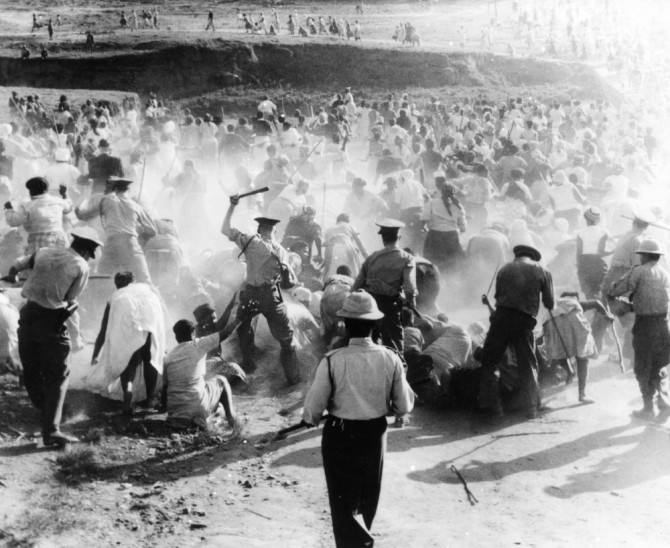Apartheid-era South Africa was an oppressive and lame place for many, but Nelson Mandela peacefully transitioned it.
You’d have to be truly screwed-up to look for “best practices” among Nazi-era laws to institute a national system that segregated people by race and controlled them by force. In 1948, the regime did just that. 20% of the population were set above the others.
At the price of gross human rights violations, the system ensured a cheap labor pool to benefit a small group. Millions were moved forcibly to desolate lands. Here is an example.
I know quite a few white South African expatriates, and they all say the same thing: It was obvious what was going on, which is why some of them emigrated. One person’s mother became an activist; they left when it was no longer safe for them to stay.
Fortunately, the rest of the world paid attention, and there were boycotts and quite a few protests. The 1960 Sharpeville Massacre was the catalyst (see photo).

Nelson Mandela was an activist, who was sentenced to life imprisonment. When he was released nearly 30 years later, he amazingly did not call for revenge.
He called for truth and reconciliation, and the country went through a unique period of confessions and requests for amnesty (example here). It was a truly amazing set of hearings (oodles of transcripts here).
Amazingly, there are still apartheid defenders out there. I’ve met two of them.
Recently, it was the 100th anniversary of Mandela’s birth. I think he was a great person, a giant among us all.
Here is a great video by Comedy Central’s Trevor Noah, who is from South Africa. I had no idea that “Nelson” was a name that a white teacher gave to him, as she didn’t want to pronounce the name his parents had given him.
The video is very funny and insightful. I hope you watch it.
